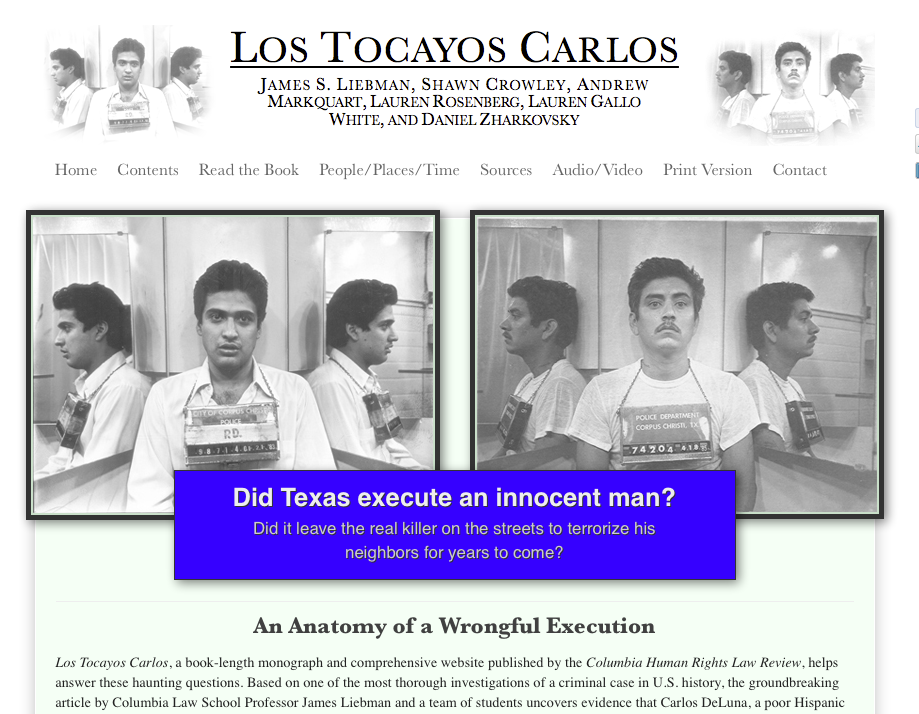
In 2006, the Chicago Tribune published a three-part investigative report that revealed the execution of Carlos DeLuna in Texas in 1989 may have been a case of mistaken identity. Today The Columbia Human Rights Law Review published The Wrong Carlos – a book-length study of the case that chronicles in shocking detail the massive series of errors that led to DeLuna’s execution.
“Carlos DeLuna’s execution passed with little notice. No one cared enough about the defendant or the victim to make sure they caught the right guy. Everything that could go wrong in a death penalty case did go wrong for DeLuna,” said Columbia Law School Professor James Liebman, the lead author of the book. “Sadly, DeLuna’s story is not unique. The very same factors that sent DeLuna to his death – faulty eyewitness testimony, shoddy legal representation, and prosecutorial misfeasance – continue to put innocent people at risk of execution today.”
Liebman’s study documents how DeLuna was convicted on the basis of one nighttime eyewitness and no forensic evidence. DeLuna maintained that another man, Carlos Hernandez, committed the crime. But his defense was derided as “some other dude named Carlos” and not taken seriously. The lead prosecutor went so far as to tell the jury that the other Carlos was a “phantom” of DeLuna’s imagination.
But Carlos Hernandez did exist and, according to the study, he was well-known to police and prosecutors for committing violent crimes similar to the murder of Wanda Lopez – the crime that sent DeLuna to death. Hernandez was even arrested for another murder using a similar weapon while DeLuna was on death row.
The study is available at http://thewrongcarlos.net, along with police photos, court records, audiotape of the police hunt that led to DeLuna’s arrest, news clips, video interviews, and more. You can also read today’s coverage of the new study by The Atlantic and The Guardian.



